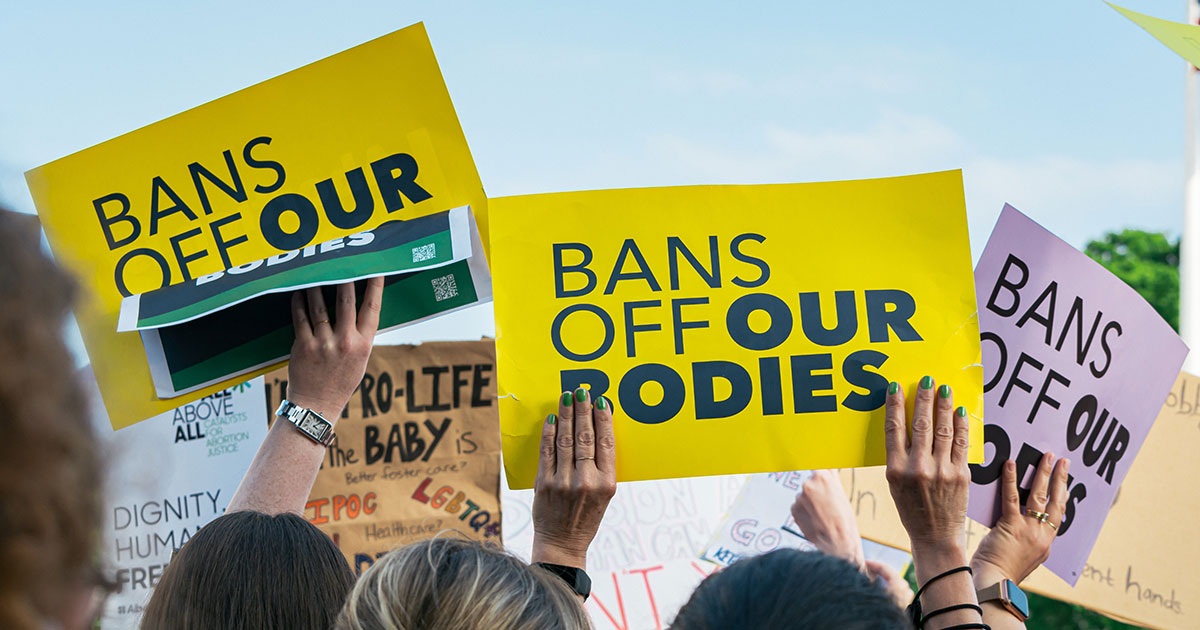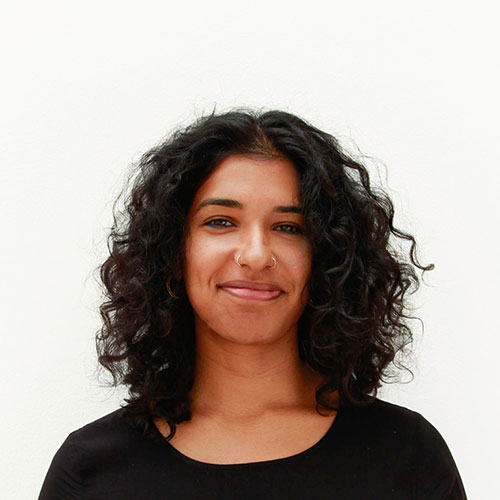RISE
★ ★ ★ ★
Roe v. Wade, feminism, and psychosocial change

Image by Gayatri Malhotra
By Aishwarya Vardhana
I was born in 1994 into an Indian-American household in the rainy northwest corner of the United States. I attended private Catholic school from kindergarten to twelfth grade, after which I landed at Stanford University in California. I remember at eighteen years old having no historical understanding of women’s rights in America, or anywhere else for that matter. When I was introduced to feminism and the women’s rights movement in college, I did not know what to make of it. My (older, white, male) mentor from high school warned me to “stay away from the women’s groups” as it would distract from my technical education as an engineer. If I had listened to him I would not be writing this piece today. The young women and genderqueer folks in these “women’s groups” changed my life. Society tells women lies from a young age and we internalize them, and it’s quite toxic to our being. The mix of Hindu and Christian patriarchal values which I carried for eighteen years told me that women, or rather the feminine, is mostly inadequate, and so I too believed the feminine to be mostly inadequate. Through close personal relationships with feminists, reading feminist literature and theory, and listening to stories, I was able to uproot lies, learn truths, and thus slowly come into an understanding of who I was and who I could be.
During college I was educated on the political nature of my body. My skin, hips, breasts, butt, and reproductive organs were more than various types of flesh, they were territories of contest. Entire philosophies blossomed upon but also waged war across my body. Controlling the female body, and by extension female reproduction, is an indubitable outcome of patriarchy, and overturning Roe v. Wade is patriarchy’s act of self-preservation. It relies on its ability to control women and all other bodies. None of us, not even cis-het white men, are free under its arbitrary restrictions.
Access to abortion and contraception is a cornerstone of feminism. If Roe v. Wade is overturned, reproductive justice will become the feminist issue of my generation. There are many parts to this story. With Roe v. Wade gone, American courts could, by extension, criminalize miscarriages, IVF, Plan B, and birth control. Without agency over our reproduction, women cannot have agency over our lives. 50% of the U.S. is female. If 50% or more Americans were in favor of female reproductive rights, our society would feel very different.
My feminist journey started with my imagination and stories. It evolved through friendships and long conversations. It is sustained by praxis, or the cycle of applying ideas and learning from the application. Since the Roe v. Wade leak, I have been thinking about ways to change our country at the psychosocial level and the role of critical pedagogy, praxis, art, the written word, and media.
Education
Justice Samuel Alito’s argument against a case as historic as Roe v. Wade has opened doors we thought closed. The right to abortion and the right to education are not as distinct as they seem. Shortly after the leak, Governor Greg Abbott (R-TX) went on The Joe Pags Show to say he thinks “we will resurrect [Plyler vs. Doe ruling of 1982] and challenge this issue again, because the expenses are extraordinary and the times are different”. Plyler vs. Doe guaranteed public education to all children, regardless of immigration status, but Gov. Abbott insists that Texas should not have to pay for the education of undocumented children. Our political battle extends from access to education to the material itself. As a movement, we must fight for an education that teaches all kids the art of social critique and political action so that they might see civic and political engagement as fundamental to life.
Art and culture
In an interview with The New Yorker Radio Hour actress Viola Davis talks about her trip to Gambia where she sees everyday people expressing themselves artistically. “[I learned that] whatever is in me is the canvas for my art. That art in Africa is not separate from life. Everybody was an artist. Art was a way for them to express, connect themselves with the world… I thought art was something very academic, outside of yourself. And in order to create it you had to forget you.” Our vision as feminists must be long and our battle begins with the imagination. Let us infuse art and creative expression into American education, demystify art making and the artist, move art history and art theory from ivory towers into the public sphere, and evangelize that everyone is an artist and every person has a story to tell and ideas to express. Let us run counter to the narrative that art and knowledge production belongs to the few because it rightfully belongs to us all.
Media
Conservative media far outpaces liberal media, and the American electorate has absorbed its increasingly authoritarian messaging. We need more feminist writers, journalists, and editors to advance democratic and humanitarian values.
Lastly, I want to call in the names of Anita Hill, Christine Blasey Ford, and Ketanji Brown Jackson, women who have existed within the gravity of the Supreme Court and survived its patriarchal attacks. Women like them give me hope, and as a feminist I am fundamentally hopeful. I believe that patriarchal systems can and will be dismantled and replaced by new systems that center the needs of marginalized people. We cannot be distracted from this singular mission and we must continue to love and support one another along the way. In an interview with The New Yorker Radio Hour, Shannon Brewer, the director of Jackson Women’s Health Organization, is asked, “What will you do if they shut you down?” She says, “The next day is, we figure out how to help women in whatever way we can … that’s what women do, we figure out how to make something work.”

Aishwarya Vardhana (she/her) is a digital product designer, artist, and writer. She is interested in decoloniality, feminism, knowledge equity, and systems thinking.
























Very well written.
>> If I had listened to “him” I would not be writing this piece today
Just not only “him” me too. It is shameful and nothing to be proud off but because of my sheer Ignorance, Stupidity and Incapability(ISI) to come out of the shell, I also am the reason for this article. BTW you should be thankful to your sister who took the major brunt of my ISI which helped you to come out of it at an early age which was when you went to college 🙂 . Thanks for opening my eyes!!